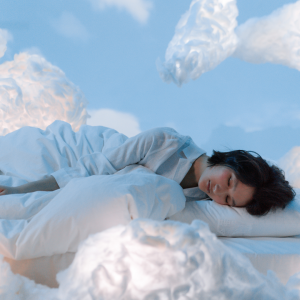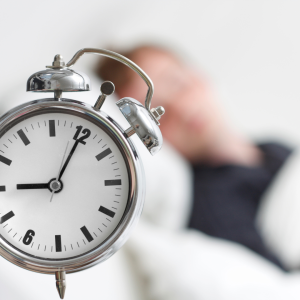Sleep is important to health, just as a healthy diet and regular exercise are. Lack of sleep, disrupted sleep or insomnia, can have a serious impact on health and may lead to anxiety, depression and internal organ disorders, including all kinds of liver diseases.

What are the reasons for disturbed sleep?
- Stress and anxiety about one’s health;
- Sleep apnea – Evidence suggests that obstructive sleep apnea is associated with the progression of non-alcoholic fatty liver disease (NAFLD) in adults;
- Interferon treatment – This medication is used to treat hepatitis B and C (“Viral Hepatitis: Know your ABCs! – Part 2”) and insomnia is a common side effect of this therapy;
- Cirrhosis – Research suggests that sleep disturbances and insomnia were common among patients with liver cirrhosis, indicating that disturbed sleep had a major effect on health problems. It was also suggested that sleep disturbances were due to an increase in circulation of cytokines in patients with hepatitis C.
Read more about cirrhosis “What you need to know about Cirrhosis”.
What are the implications between sleep and liver health?
Every human has a circadian rhythm (internal body clock), a 24-hour cycle that tells our bodies when to sleep by the production of hormones. Air travel across different time zones causing jet lag or working night shifts can affect the circadian rhythm.
The liver function is associated with the activities and resting of the body and the liver also has its own circadian clock. When you sleep, the clock helps to maintain a constant blood glucose level and your body recharges itself and builds up your immune system. Prolonged sleep deprivation and disturbances to the sleep-wake and rest-activity cycles can lead to illness. Research shows that disruption of the liver’s circadian rhythm can lead to the buildup of fat in the liver and this excess liver fat can cause liver disease.

Tips for better sleep:
- Go to bed and wake up at the same time every day. Having a regular sleep schedule allows your body to eliminate unnecessary toxins. The process of detoxification is best done in a deep sleep state.
- Relax before bed time with a pre-bedtime routine that soothes your mind.
- Refrain from using electronic devices before going to bed as the light emitted from the devices promote wakefulness when our brains should be “winding down” to sleep.
- Caffeine is a stimulant and should be avoided caffeine few hours before bed time. Try a hot drink instead.
- Turn any clock you have in your bedroom away from you as “clocking watching” may worsen insomnia.
References
Egyptian Journal of Chest Diseases and Tuberculosis, Volume 62, Issue 4, October 2012 (ScienceDirect)
Elsevier Health Sciences
Journal of Circadian Rhythms “Prevalence of Insomnia and Sleep Patterns among Liver Cirrhosis Patients”
Medical News Today
National Institutes of Health, US Department of Health & Human Services
US National Library of Medicine, National Institutes of Health
![]()











